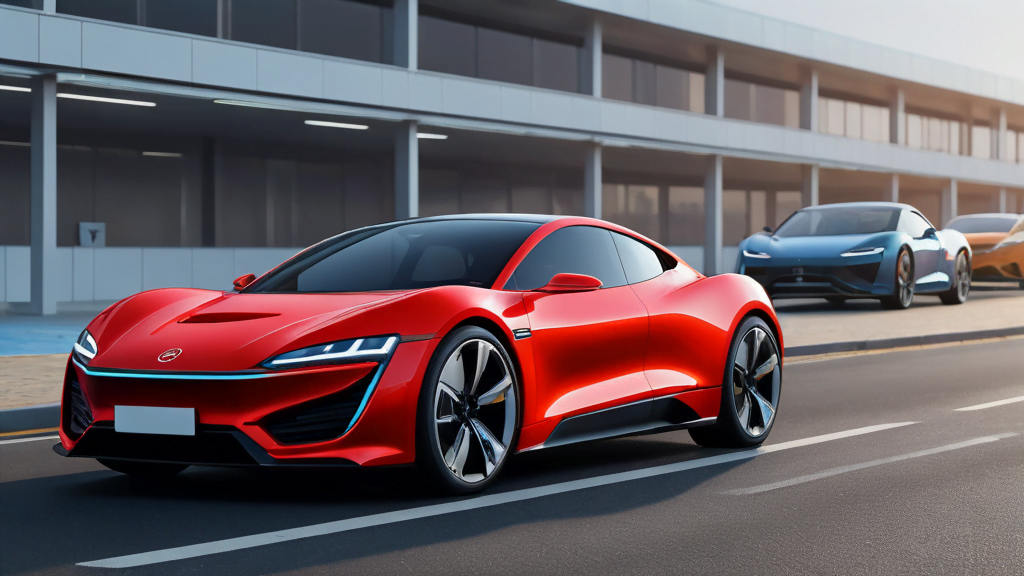

Why Electric Cars Are the Future: Benefits and Drawbacks
The automotive industry is undergoing a significant transformation with the rise of electric cars. As concerns about climate change, pollution, and fossil fuel dependency grow, electric vehicles (EVs) present a promising solution. However, like any technological advancement, EVs come with their own set of advantages and challenges. In this comprehensive guide, we will explore why electric cars are considered the future of transportation, highlighting their benefits and drawbacks.
Benefits of Electric Cars
1. Environmental Impact
Reduced Emissions
Electric cars produce zero tailpipe emissions, significantly reducing greenhouse gas emissions and air pollutants compared to conventional gasoline or diesel vehicles. This reduction helps combat climate change and improves air quality, especially in urban areas.
Renewable Energy Integration
EVs can be powered by renewable energy sources such as wind, solar, and hydroelectric power. As the electricity grid becomes greener, the overall carbon footprint of electric cars will continue to decrease.
2. Cost Savings
Lower Operating Costs
Electric cars have fewer moving parts than internal combustion engine vehicles, resulting in lower maintenance costs. There are no oil changes, and components like brakes experience less wear due to regenerative braking systems.
Fuel Savings
Electricity is generally cheaper than gasoline or diesel. Charging an EV costs significantly less than refueling a conventional car, leading to substantial savings over time.
3. Performance and Technology
Instant Torque
Electric motors provide instant torque, delivering rapid acceleration and a smooth driving experience. This responsiveness is one of the key attractions of electric cars.
Advanced Technology
EVs are often equipped with the latest technology, including advanced driver assistance systems (ADAS), over-the-air software updates, and cutting-edge infotainment systems. These features enhance safety, convenience, and connectivity.
4. Energy Independence
Reduced Oil Dependency
By shifting to electric vehicles, countries can reduce their dependence on imported oil. This transition enhances energy security and stabilizes economies by mitigating the impact of oil price fluctuations.
Local Energy Production
Electric cars can be powered by domestically produced electricity, fostering local energy production and supporting the development of renewable energy infrastructure.
Drawbacks of Electric Cars
1. Limited Range and Charging Infrastructure
Range Anxiety
Although the range of electric cars has improved significantly, it still lags behind the range of traditional gasoline vehicles. Range anxiety, the fear of running out of charge before reaching a charging station, remains a concern for potential EV buyers.
Charging Time
Charging an electric car takes longer than refueling a gasoline vehicle. While fast chargers can replenish a battery to 80% in 30-60 minutes, standard home chargers may take several hours for a full charge.
2. Upfront Costs
Higher Purchase Price
The initial cost of electric cars is generally higher than that of conventional vehicles. Although government incentives and decreasing battery prices are helping to narrow this gap, the upfront expense can still be a barrier for many consumers.
3. Battery Life and Environmental Concerns
Battery Degradation
Over time, the performance of electric car batteries can degrade, leading to reduced range and efficiency. Replacing a battery can be expensive, although warranties often cover battery health for several years.
Environmental Impact of Battery Production
The production of lithium-ion batteries involves mining and processing materials like lithium, cobalt, and nickel, which have significant environmental and ethical implications. Recycling and sustainable sourcing practices are crucial to mitigate these impacts.
4. Limited Model Availability
Market Options
While the variety of electric car models is expanding, the market still offers fewer choices compared to gasoline and diesel vehicles. Consumers looking for specific features or vehicle types may find their options limited.
Conclusion
Electric cars represent a crucial step toward a more sustainable and technologically advanced future. Their environmental benefits, cost savings, and performance advantages make them an attractive option for many drivers. However, challenges such as range anxiety, charging infrastructure, and initial costs need to be addressed to facilitate widespread adoption.
As technology continues to evolve and governments invest in supportive infrastructure and policies, the drawbacks of electric cars are likely to diminish. In the coming years, we can expect electric vehicles to become an increasingly common sight on our roads, driving us toward a cleaner, greener future.
Add a comment Cancel reply
Categories
- Auto Detailing (1)
- Automobile Reviews (2)
- Automobiles (1)
- Automotive (10)
- Automotive Industry (3)
- Automotive Reviews (2)
- Automotive Trends (2)
- Car News (10)
- Car Reviews (3)
- Cars in UAE (12)
- Classic Cars (1)
- Electric Vehicles (4)
- Green Technology (2)
- UAE-CARS (60)
Recent Posts
Related posts


Best Cars for Uber & Careem Drivers in UAE – Maximize Earnings

Top 10 Car Accessories Every UAE Driver Should Have








